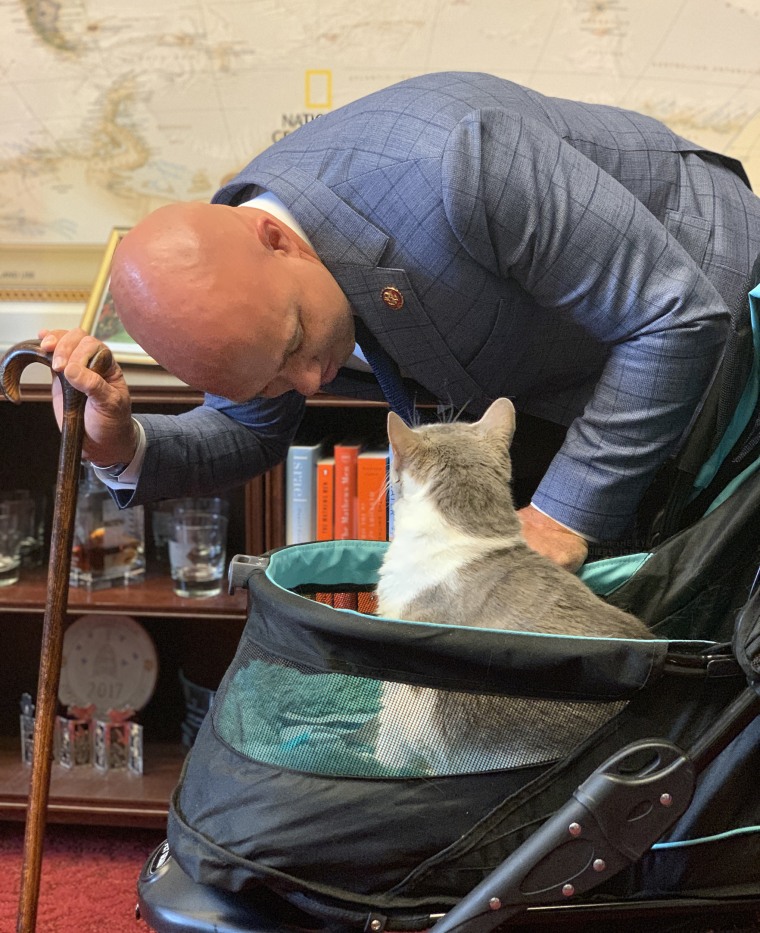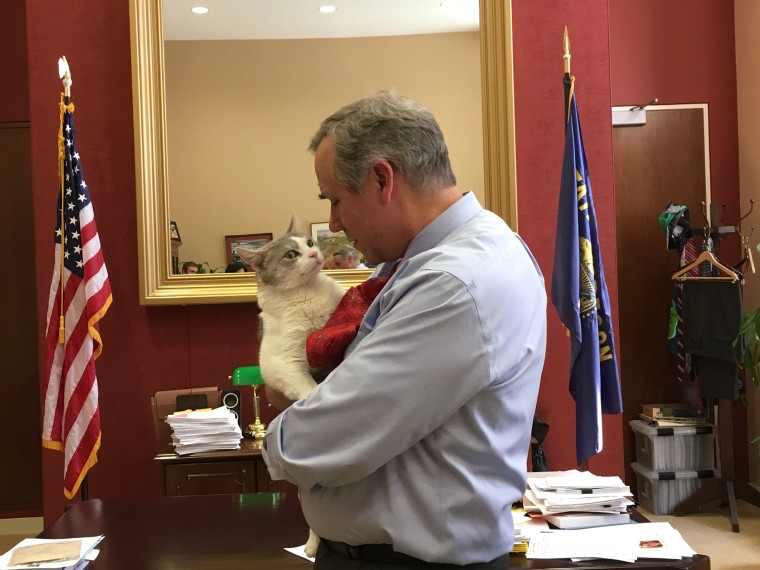Two lawmakers are the cat's meow on Capitol Hill.
Sen. Jeff Merkley, D.-Ore, and Rep. Brian Mast, R.-Fla., who were instrumental in ending the Department of Agriculture's so-called "kitten slaughterhouse," were visited on Thursday by two cats who were spared when the government program was shut down earlier this year.
"I’m so glad you're freed," Merkley said in his Senate office while holding survivor Delilah, who was brought to the Capitol along with another cat named Petite by the organization White Coat Waste Project.
The group is a non-profit that combats wasteful government spending on animal testing, and issued a report earlier this year showing U.S Department of Agriculture's lab in Maryland had been performing gruesome and fatal testing on cats.
Merkley told NBC News that he'd been unaware of the USDA's decades-old program until advocates presented the information to him.
"When I heard about the absolutely unnecessary slaughter of these animals, I just thought that's just wrong, we don't treat animals that way, and let's apply some pressure and try to change it. And so I feel like I was a partner at the last moment after they've done all the real work," he said.
The U.S.D.A.'s Agricultural Research Services lab, based in Beltsville, Maryland, had been infecting cats with toxoplasmosis and then euthanizing them since 1982 as part of its effort to combat the foodborne illness.
"But these were healthy, healthy adoptable kittens," said WCW president Anthony Bellotti. "Toxoplasmosis is something that is treatable."
And some of the testing was downright bizarre — including feeding cats tainted cat meat, the WCW found.
Over the course of the program, which cost $22 million, 3,000 cats were killed by the USDA. Delilah was born at the facility in 2013 and Petite was purchased from a breeder in 2015, the WCW. Both were used to breed kittens for experiments.

Rep. Brian Mast, R-Fla., another lawmaker who played a role in pressuring the USDA to halt the program, met the two cats in his House office.
Mast and Merkley had been championing bipartisan legislation called the Kittens in Traumatic Testing Ends Now — or KITTEN — act when the USDA announced it was ending the program in April.
"It's not often that you necessarily get to just, you know, have in your office and see the results of some of the work that you do," Mast said about the cats. "For me, it's nice to have you bring them in here, and to see the results of a little bit of the work that we got to do out there."
Fourteen cats that had remained at the facility were adopted out, and Delilah and Petite are currently being fostered and are expected to be adopted soon, the WCW said.
"Whether you're an animal lover, or liberty lover, you don't like the government waste factor of this whole thing, this was something that everyone could get behind. It's not a Democrat or Republican issue," Bellotti said.


